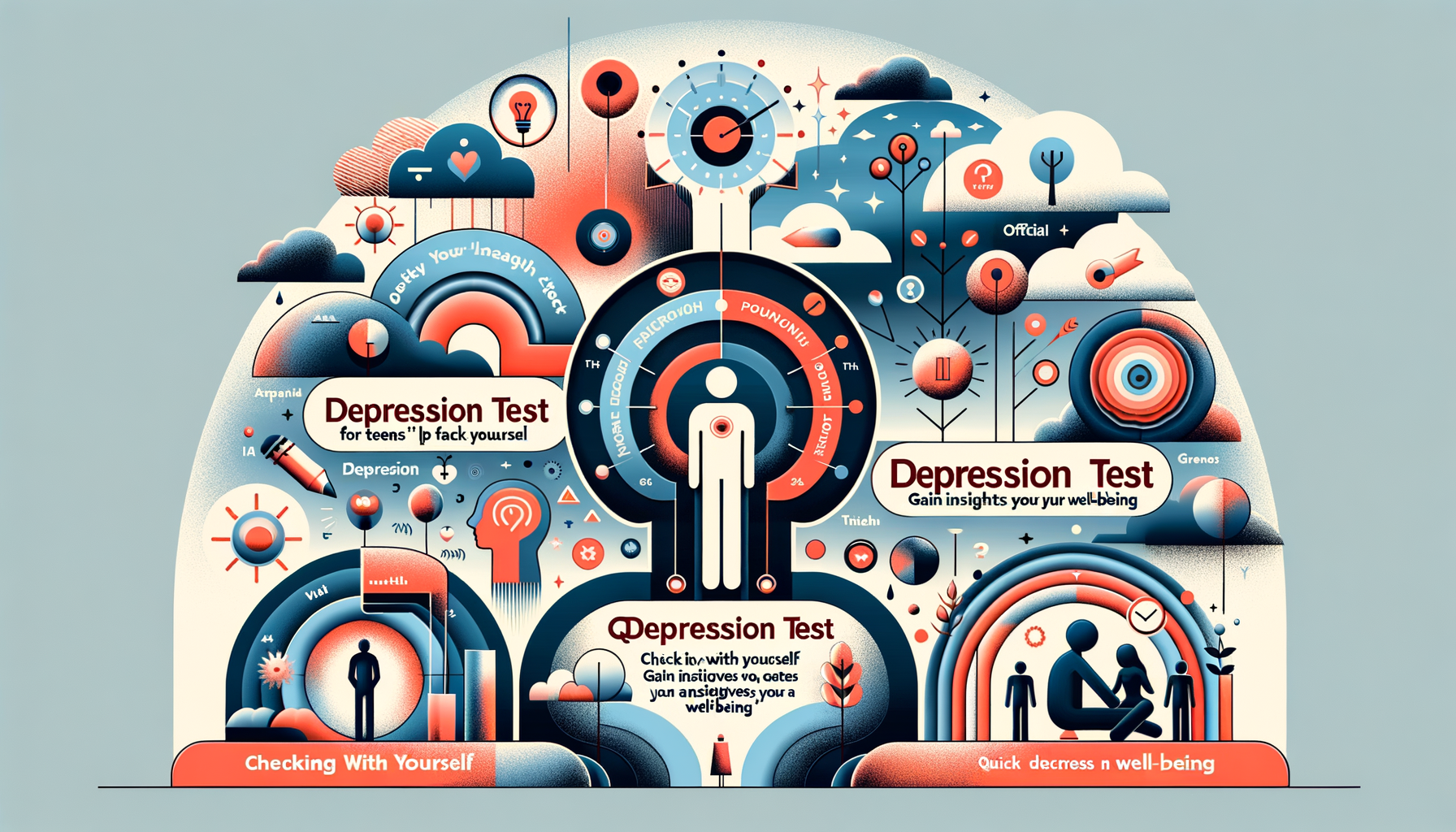Understanding Depression Tests for Teens
Teenage years are often filled with a whirlwind of emotions and changes. With the pressures of school, social dynamics, and personal growth, it’s not uncommon for teens to experience moments of sadness or anxiety. However, when these feelings become overwhelming and persistent, it might be time to consider a depression test for teens. These assessments are designed to gauge the emotional well-being of adolescents and can be a valuable tool in identifying potential mental health issues early on.
Depression tests for teens typically include a series of questions that explore various aspects of their emotional and psychological state. These may cover:
- Frequency of feelings of sadness or hopelessness
- Changes in sleep patterns or appetite
- Levels of energy and motivation
- Interest in daily activities and social interactions
By addressing these areas, a depression test can help in recognizing patterns that may indicate depression. It’s important to note that while these tests provide insight, they are not diagnostic tools. Consulting with a mental health professional is essential for a comprehensive evaluation.
The Importance of Official Depression Tests
When considering mental health assessments, the term “Depression Test Official” often comes up. Official depression tests are standardized tools that have been validated through research to ensure their reliability and accuracy. These tests are typically administered by healthcare professionals and are designed to provide a more thorough understanding of an individual’s mental health status.
Official depression tests can vary but commonly include:
- Structured interviews conducted by clinicians
- Standardized questionnaires with established scoring systems
- Comprehensive assessments that may include both psychological and physical evaluations
The advantage of official depression tests lies in their ability to offer a more complete picture of an individual’s mental health. They are often used in clinical settings to guide treatment plans and track progress over time. While self-assessment tools can be helpful, official tests provide a more authoritative evaluation, which is crucial for effective intervention and support.
Quick Depression Tests: A Convenient First Step
In our fast-paced world, many individuals seek quick solutions to assess their mental health. Quick depression tests have emerged as a convenient option for those looking to gain immediate insights into their emotional well-being. These tests are typically brief, often taking only a few minutes to complete, and can be found online or in self-help resources.
While quick depression tests are not a substitute for professional evaluation, they can serve several purposes:
- Providing an initial indication of potential depression symptoms
- Encouraging individuals to seek further assessment if results suggest significant concerns
- Offering a non-intimidating way to reflect on one’s mental health
It’s important to approach quick depression tests with an understanding of their limitations. They are not comprehensive and should not be used as the sole basis for diagnosing depression. However, they can be a valuable starting point for those who are unsure about their mental health and are seeking direction on next steps.
Comparing Different Types of Depression Tests
With various depression tests available, it’s essential to understand the differences and choose the right one for your needs. Depression tests can generally be categorized into self-assessment tools, official assessments, and quick tests. Each type has its unique features and purposes.
Self-assessment tools are often available online and can be completed in privacy. They are useful for individuals who want to explore their feelings without immediate professional involvement. However, they lack the depth and validation of official assessments.
Official assessments, as mentioned earlier, are conducted by professionals and provide a comprehensive evaluation. They are ideal for individuals who are ready to seek professional help and need a thorough understanding of their mental health.
Quick tests offer a middle ground, providing immediate feedback that can prompt further action. They are accessible and easy to complete, making them suitable for those who need a quick check-in with their mental health.
Choosing the right depression test depends on several factors, including the individual’s comfort level, the severity of symptoms, and the desired level of insight. It’s always advisable to follow up with a healthcare provider for any concerns raised by these tests.
Conclusion: Taking Control of Your Mental Health
Understanding one’s mental health is an empowering step towards well-being. Whether you’re a teen experiencing emotional turbulence, an adult seeking an official evaluation, or someone looking for a quick check-in, depression tests can provide valuable insights. However, it’s crucial to remember that these tests are just one part of the mental health journey.
For those who find themselves concerned about their results, reaching out to a mental health professional is a vital next step. Professional guidance can offer support, resources, and treatment options tailored to individual needs. Taking control of your mental health involves a combination of self-awareness, professional support, and ongoing care.
By utilizing the appropriate depression test and seeking help when needed, individuals can take proactive steps towards improving their mental health and overall quality of life.

Leave a Reply